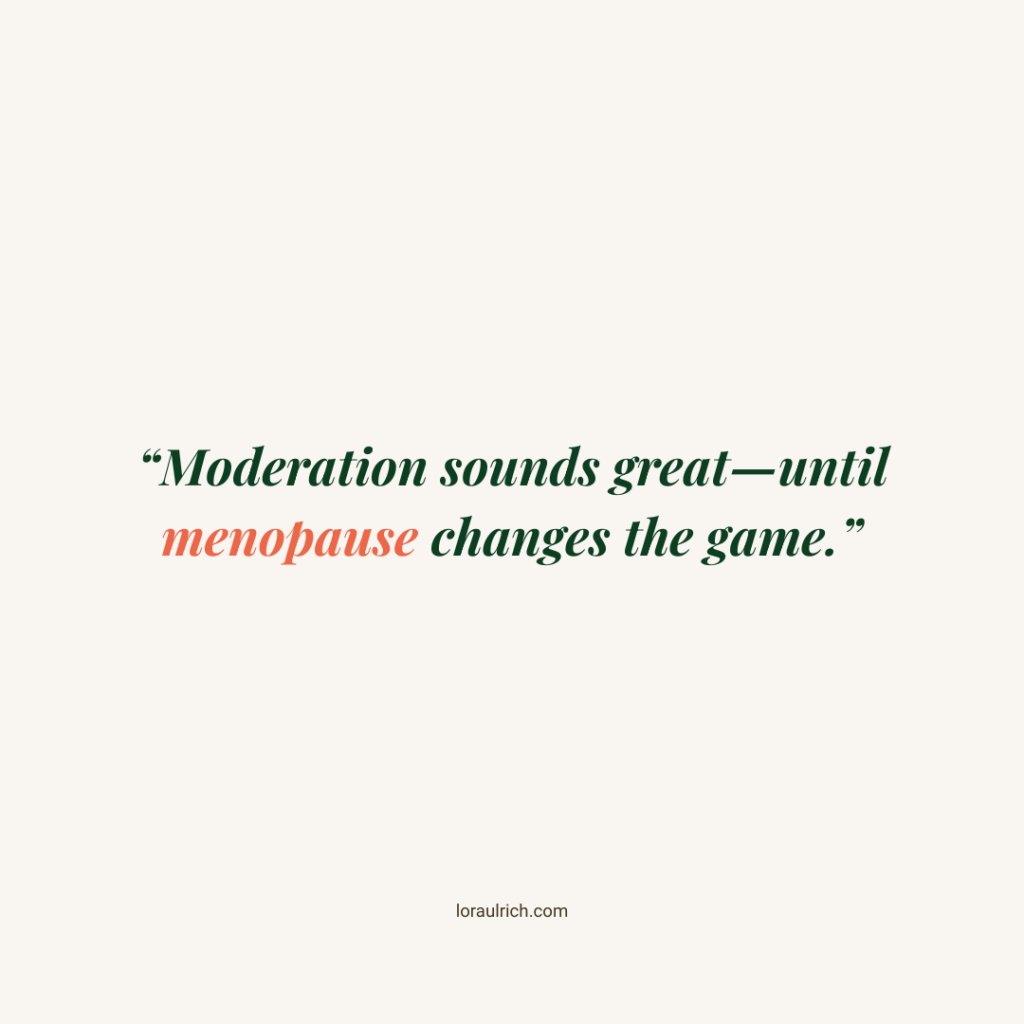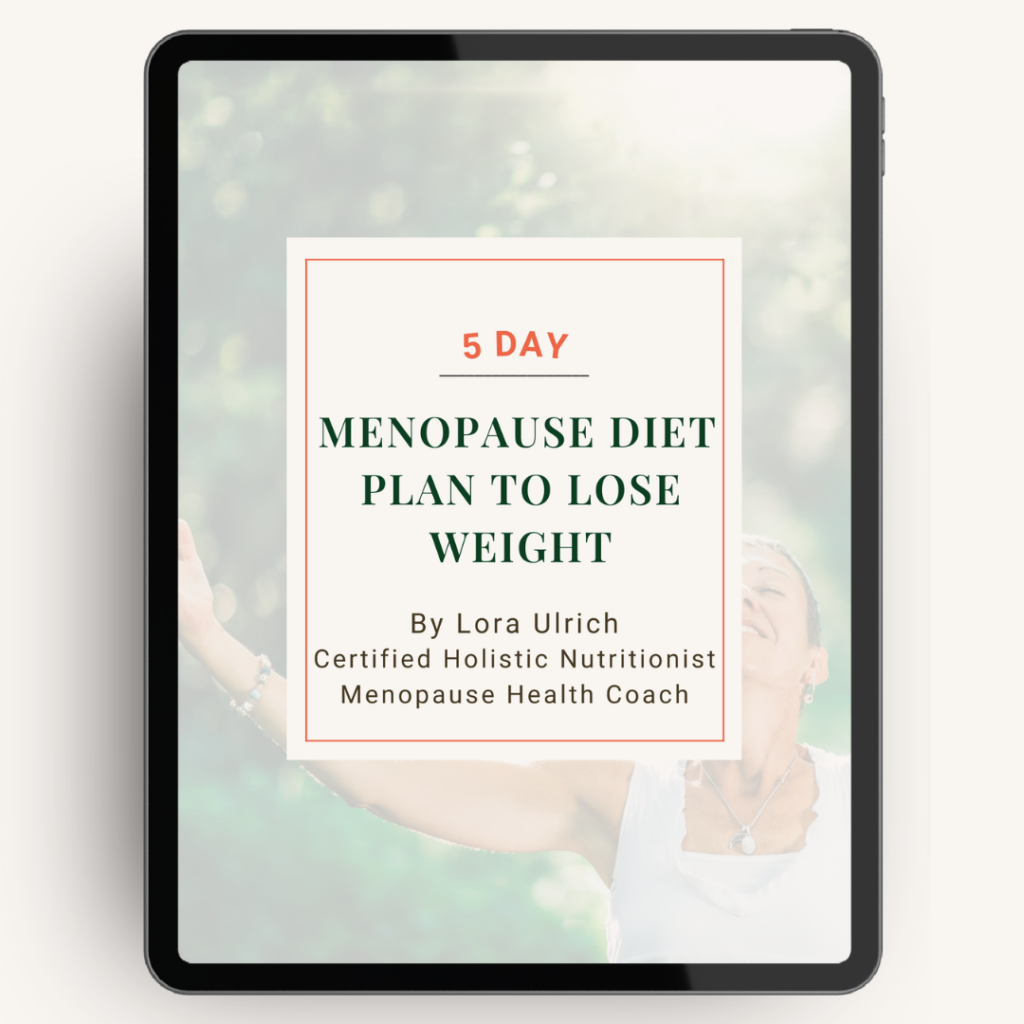“Does moderation work? It’s one of the biggest buzzwords in wellness right now. But guess what? It doesn’t work… because almost everyone does it wrong.
I know, I know—moderation sounds like the dream, right? Eat a little of this, a little of that, and you’re golden. But if you’ve hit midlife and suddenly feel like your body didn’t get the memo, you’re not alone.
Menopause changes everything: your metabolism, your cravings, your energy. What used to “work” no longer does.
So, let’s break it down. Does moderation actually help you lose weight and feel good in menopause, or is it just another wellness myth?
Understanding Moderation in Nutrition and Wellness
Moderation is often defined as eating all foods in balanced amounts without extreme restriction. The idea is to enjoy a little bit of everything while avoiding excessive compulsion. In theory, this sounds great. In real life? Not so much. Especially when you’re dealing with hormonal shifts, increased cravings, and a metabolism that’s playing hard to get.
Source: British Nutrition Foundation
The Problem with a One-Size-Fits-All Approach
- Moderation doesn’t define what “balanced” actually looks like.
- Some foods (looking at you, sugar!) hijacking your cravings, making moderation nearly impossible.
- Everyone’s body is different. What works best for your best friend may not work for you.
Source: Cleveland Clinic

The Role of Metabolism in Midlife
Here’s a hard pill to swallow: our metabolism isn’t what it was in our 30s. Declining estrogen, muscle loss, and changes in insulin sensitivity all make weight management trickier. If you’ve noticed that “just eating less” isn’t working anymore, it’s not your fault—it’s biology.
Source: NIH
Why “Eating in Moderation” May Not Be Enough
- Hormonal changes make your body store more fat, especially around your belly.
- Your insulin response shifts, so even “a little” sugar or processed food can cause energy crashes.
- Less muscle mass = fewer calories burned at rest.
If moderation includes too many processed foods, sugars, or empty calories, it may not be giving your body the support it needs for lasting energy and weight loss.
Source: Northwestern Medicine
Can Moderation Work for Weight Loss and Hormone Balance?
It depends on what you’re eating and how your body reacts. Many women find that simply cutting back on portions or “treating themselves in moderation” doesn’t deliver results. Sound familiar?
The Hidden Challenges of Moderation in Menopause
- Processed foods, sugar, and alcohol can still mess with blood sugar, even in small amounts.
- “Just one bite” can trigger cravings, making it harder to stop.
- Your body has new nutrient needs—it’s not just about eating less, it’s about eating smarter.
Source: Mayo Clinic
When Moderation Fails: Common Pitfalls
Tried moderation and still struggling? Here’s why it may not be working:
- Emotional eating and cravings: Even a tiny bit of sugar or processed food can send you down a rabbit hole of cravings.
- Hyper-palatable foods: Sugar + fat + salt = a brain that just won’t quit asking for more.
- Not prioritizing nutrients: If moderation lets in too many empty calories, your body misses out on what it actually needs.
Source: MyDoctor.com

What Works Better? Smart Eating Strategies for Midlife Women
Instead of trying to “moderate” everything, focus on fueling your body with what it actually needs. Here’s what works:
1. Protein First Eating for Metabolic Health
- Support muscle mass (which keeps metabolism humming!).
- Reduce cravings and stabilizes blood sugar.
- Great sources: lentils, chickpeas, wild caught fish
2. Whole Food-Focused Approach
- Prioritize fiber-rich veggies, lean proteins, and healthy fats.
- Skip trying to moderate sugar and processed foods—replace them with better options.
- Example: Instead of “just a little” soda, switch to infused water or herbal teas.
3. Strategic Indulgences
- Treats are fine: but structure them in a way that works for you, not against you.
- Try an 90/10 approach: 90% whole foods, 10% enjoyable extras.
- Example: Swap candy for dark chocolate with nuts to balance the sugar hit.
Practical Tips for Sustainable Eating
Want to balance without the struggle? Try this:
- Listen to your body: Are you actually hungry, or just bored/stressed?
- Build a balanced plate: Protein, fiber, and healthy fats will keep you satisfied.
- Practice mindful eating: Slow down and enjoy – your body will tell you when it’s had enough.
So, Does Moderation Work?
Moderation can work. BUT only if it’s tailored to your body’s needs. For midlife women, a structured, nutrient-first approach often works better than simply eating smaller portions of everything. Instead of fighting cravings and willpower, shift your focus to foods that support your hormones, metabolism, and energy levels.
Ready to Take the Next Step?
If you’re done with the frustration of “eating less” and still gaining weight, it’s time for a better plan. Check out The 5-Day Menopause Diet Plan To Lose Weight: a step-by-step guide designed just for midlife women.
If you need more personal support…
Access your complimentary 15-Minute Breakthrough Session below and we can discuss a personalized plan for you. ❤️
FAQs: Does Moderation Work?
Moderation can work, but only if it’s tailored to your body’s needs. For midlife women, a structured, nutrient-first approach is often more effective than simply eating smaller portions of everything.
It depends on what you’re moderating. If moderation includes too many processed foods, sugars, or empty calories, it may not support weight loss. A smarter approach is prioritizing protein, fiber, and whole foods to fuel metabolism and balance hormones.
Moderation means eating all foods in balanced amounts without extreme restriction. However, in menopause, hormonal shifts and metabolism changes make it harder to rely on willpower alone. Instead, focusing on nutrient-dense foods and strategic indulgences works better.
Yes, but alcohol can still impact metabolism, blood sugar, and hormone balance—even in small amounts. If you choose to drink, opt for lower-sugar options and balance them with protein and hydration to minimize negative effects.

+ show Comments
- Hide Comments
add a comment